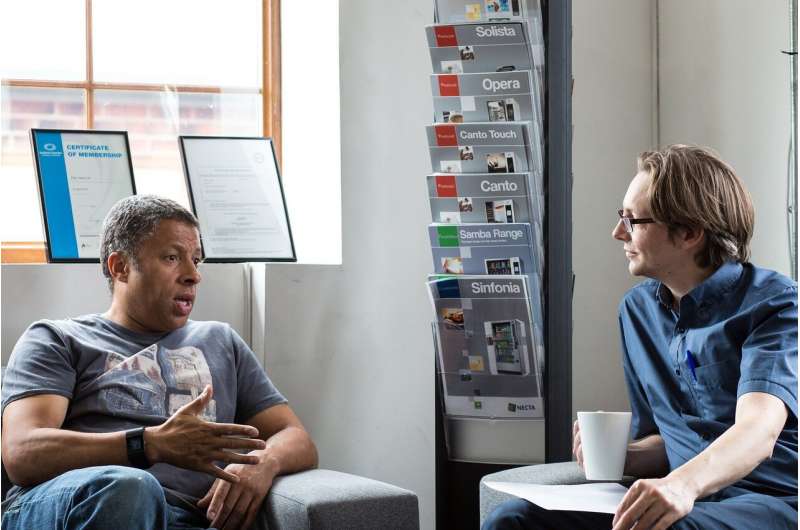January 26, 2021 report
Experiments show people with contrasting views more respected if they use personal experiences rather than facts

A team of researchers with the University of Koblenz-Landau, the University of North Carolina at Chapel Hill and the Wharton School of Business has found that people looking for more respect from others with contrasting viewpoints are more likely to get it if they argue using personal anecdotes rather than facts. In their paper published in Proceedings of the National Academy of Sciences, the group describes 15 unique experiments they conducted to learn more about tolerance in political arguments.
In the U.S. and many other countries, political differences have led to animosity—differences between those with liberal views and those who hold more traditional or conservative beliefs have grown more heated in recent times. In this new effort, the researchers wondered if different approaches used by people when engaging in a political discussion might have different degrees of success. More specifically, they wondered if people would respond with more tolerance for one another if arguments were personally based rather than fact-based. To find out, they carried out a series of experiments.
In their first experiments, they simply asked volunteers to rate whether they would respect the opinions of another person more or less based on facts versus personal anecdotes. More than half of such respondents reported that they would respect another's opinions more if they were fact-based. Subsequent experiments designed to test these feelings, however, showed the opposite to be true.
The next experiments involved observing people with differing views engaging in a political discussion and noting whether they were more respectful of one another when anecdotes were used rather than facts. Other experiments involved analyzing comments left on YouTube videos about controversial topics such as the death penalty, abortion and gun control. The researchers likewise studied comments left on op-eds posted on well known sites like the New York Times, CNN and Fox News.
The researchers found that people were more respectful with people of opposing views if the person expressing their views used anecdotal experience rather than data. In taking a closer look, they found that the more personal the anecdotes were (particularly if they were painful experiences), the more respectfully they were treated.
Explore further
© 2021 Science X Network








 User Center
User Center My Training Class
My Training Class Feedback
Feedback












Comments
Something to say?
Log in or Sign up for free